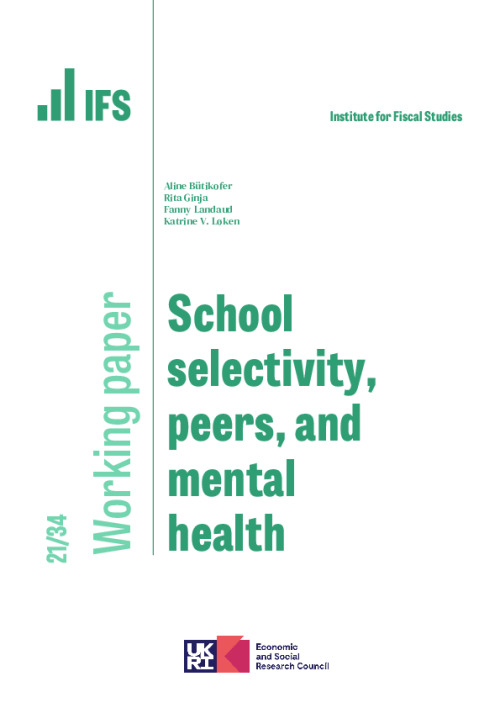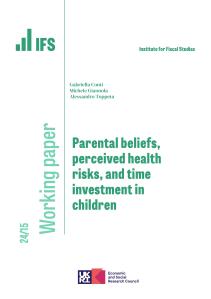Downloads

WP202134-School-selectivity-peers-and-mental-health.pdf
PDF | 920.32 KB
Although many students suffer from anxiety and depression, and often identify school pressure and concerns about their futures as the main reasons for their worries, little is known about the consequences of a selective school environment on students’ mental health. Using a regression discontinuity analysis in the largest Norwegian cities, we show that eligibility to enroll in a more selective high school increases the probability of enrollment in higher education and decreases the probability of diagnosis or treatment of psychological problems. We provide suggestive evidence that changes in both teacher and peers’ characteristics are likely drivers of these effects.
Authors

Research Associate University of Bergen
Rita is an IFS Research Associate, an Associate Professor at the University of Bergen and a Research Associate at the Uppsala University.

Katrine Loken

Aline Bütikofer

Fanny Landaud
Working Paper details
- DOI
- 10.1920/wp.ifs.2021.3421
- Publisher
- Institute for Fiscal Studies
Suggested citation
Bütikofer, A et al. (2021). School selectivity, peers, and mental health. London: Institute for Fiscal Studies. Available at: https://ifs.org.uk/publications/school-selectivity-peers-and-mental-health (accessed: 28 April 2024).
More from IFS
Understand this issue

If you can’t see it, you can’t be it: role models influence female junior doctors’ choice of medical specialty
24 April 2024

Spring Budget 2024: What you need to know
7 March 2024

The NHS waiting list: when will it come down?
29 February 2024
Policy analysis

Progression of nurses within the NHS
12 April 2024

Regional variation in earnings and the retention of NHS staff in Agenda for Change bands 1 to 4
10 April 2024

Spring Budget 2024
6 March 2024
Academic research

A senior doctor like me: Gender match and occupational choice
24 April 2024

Parental beliefs, perceived health risks, and time investment in children
15 April 2024

Longer-term impacts of the COVID-19 pandemic on the dietary purchasing choices of British households
4 April 2024